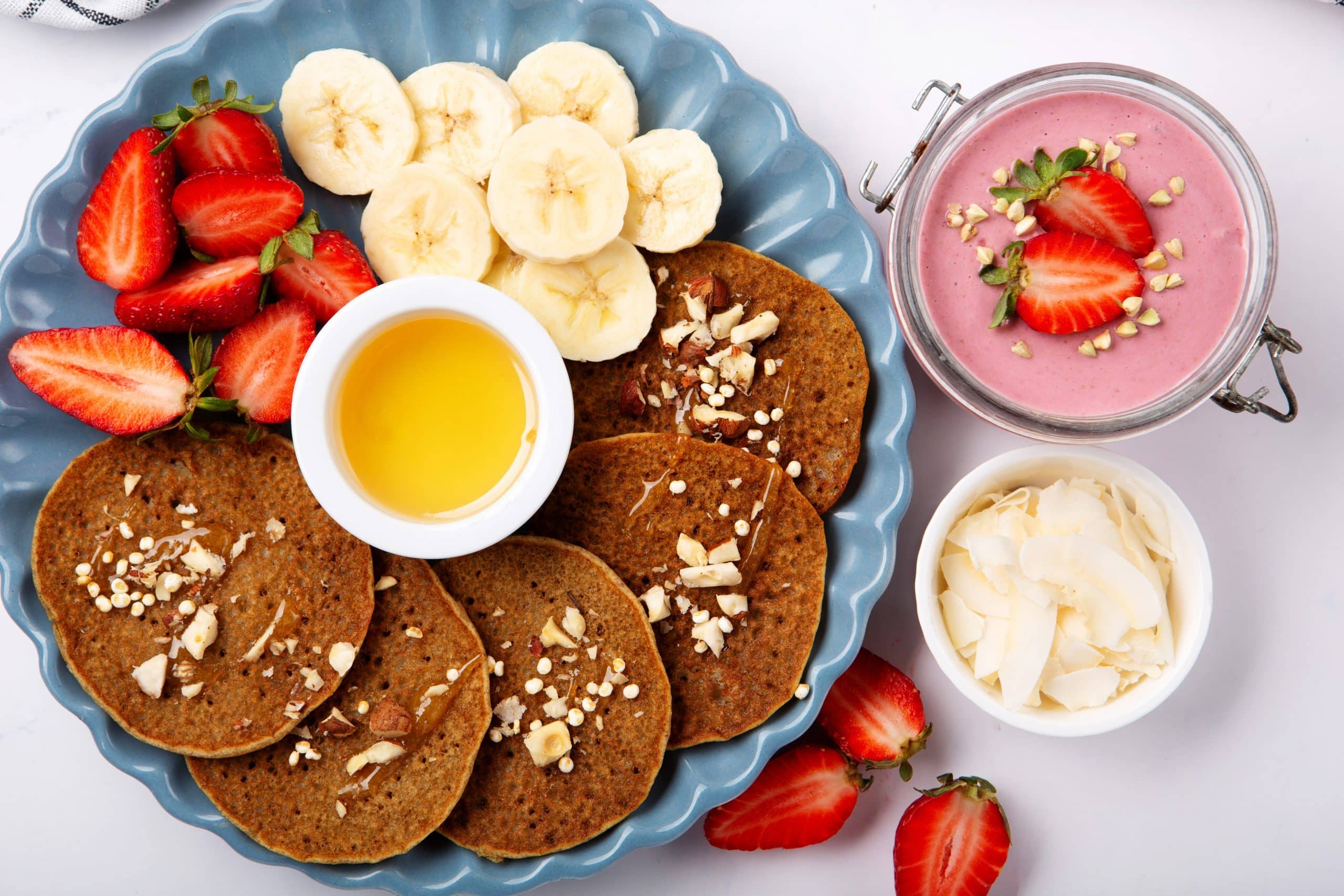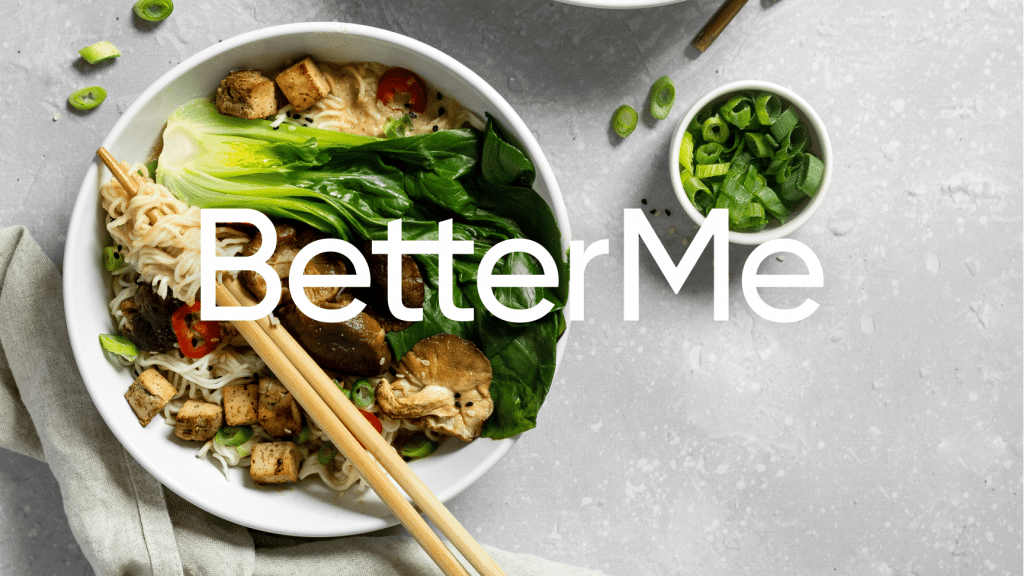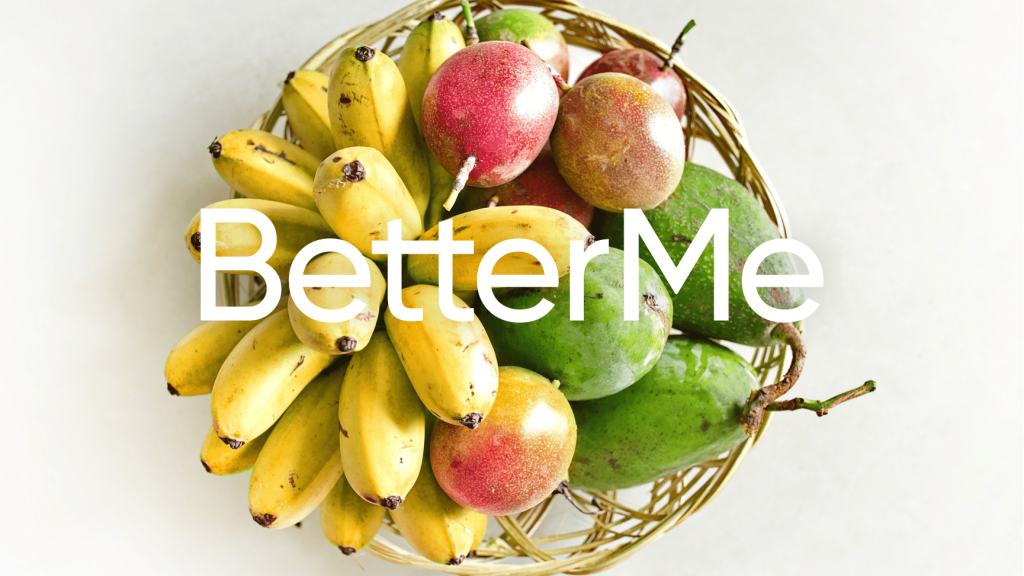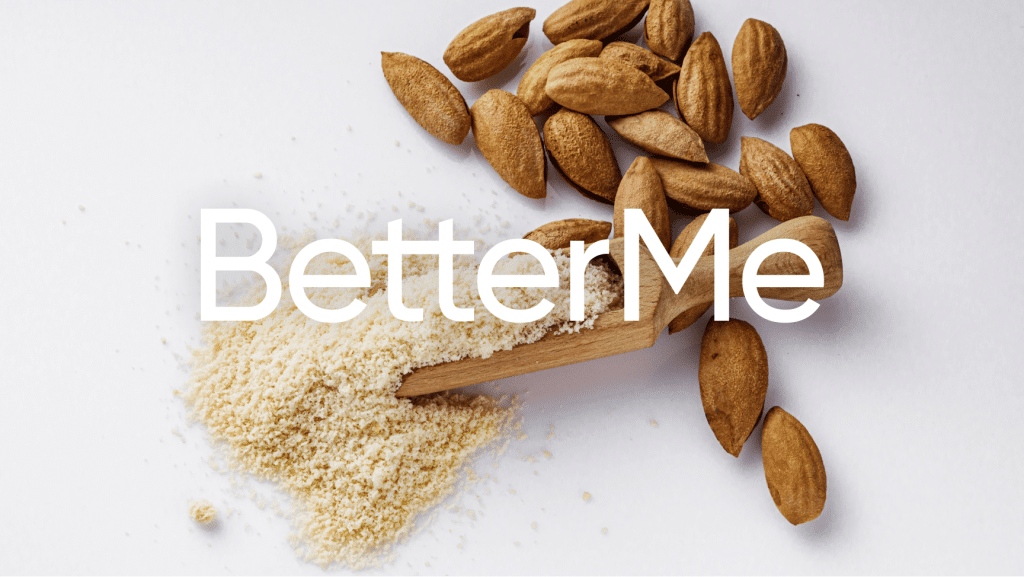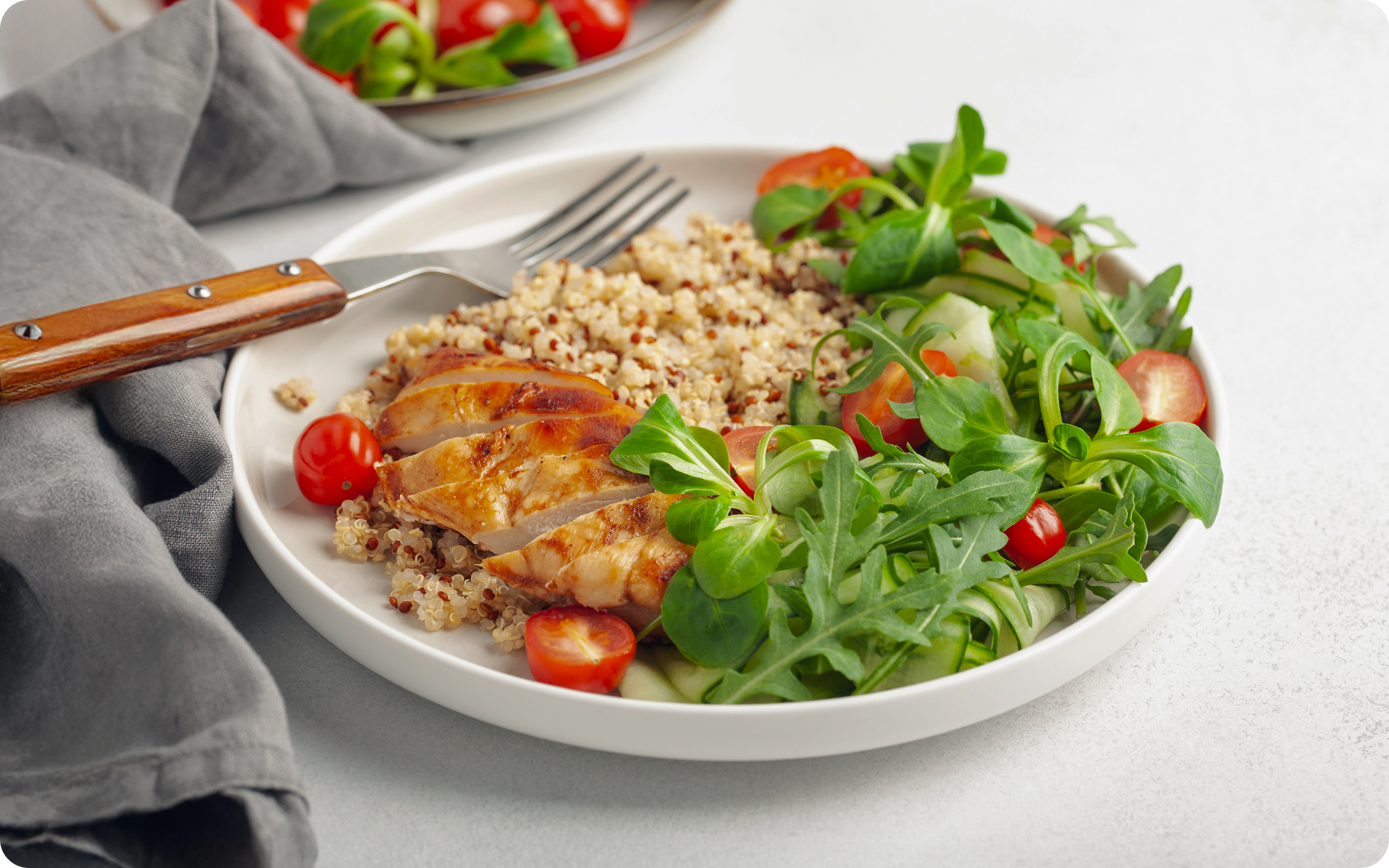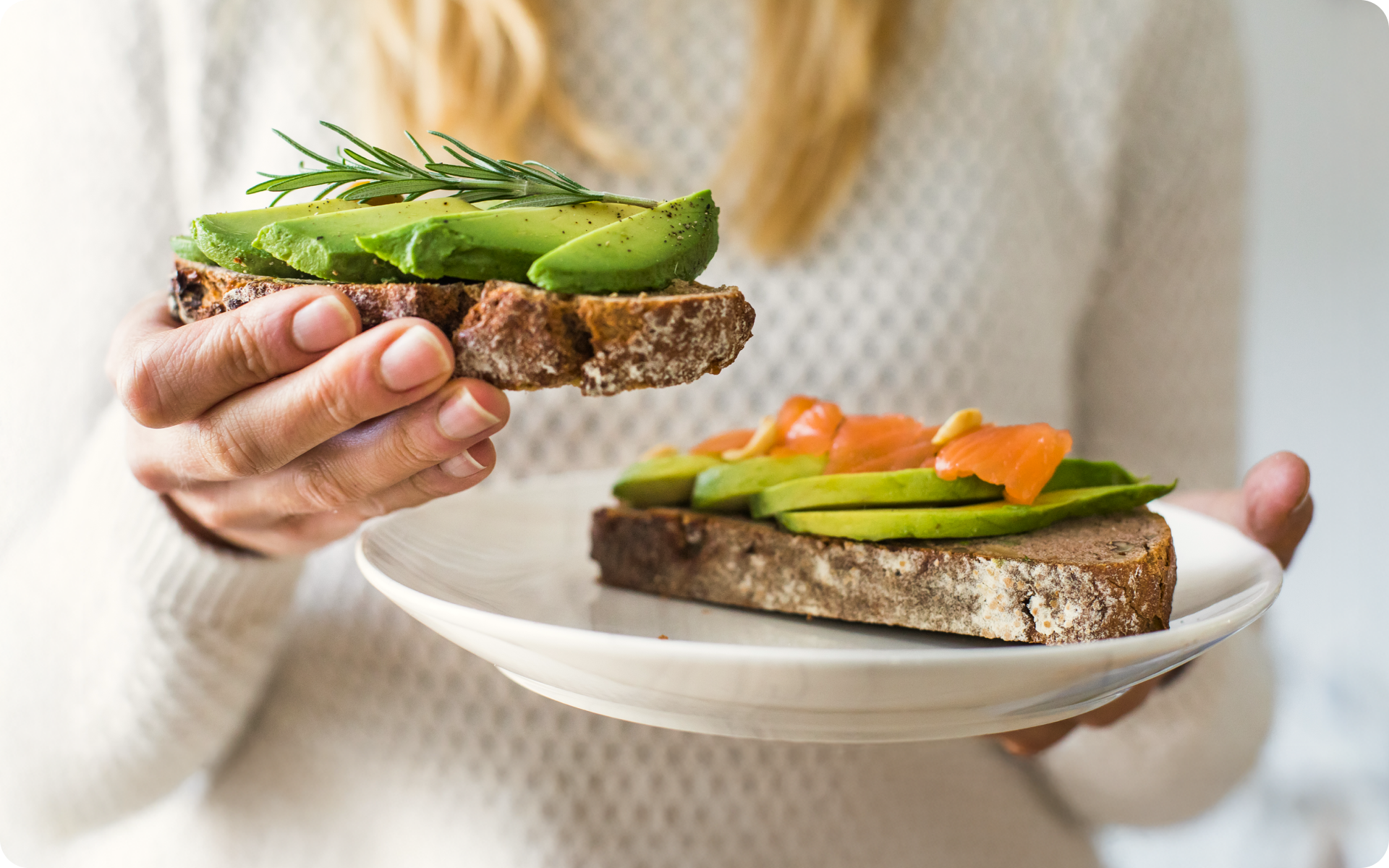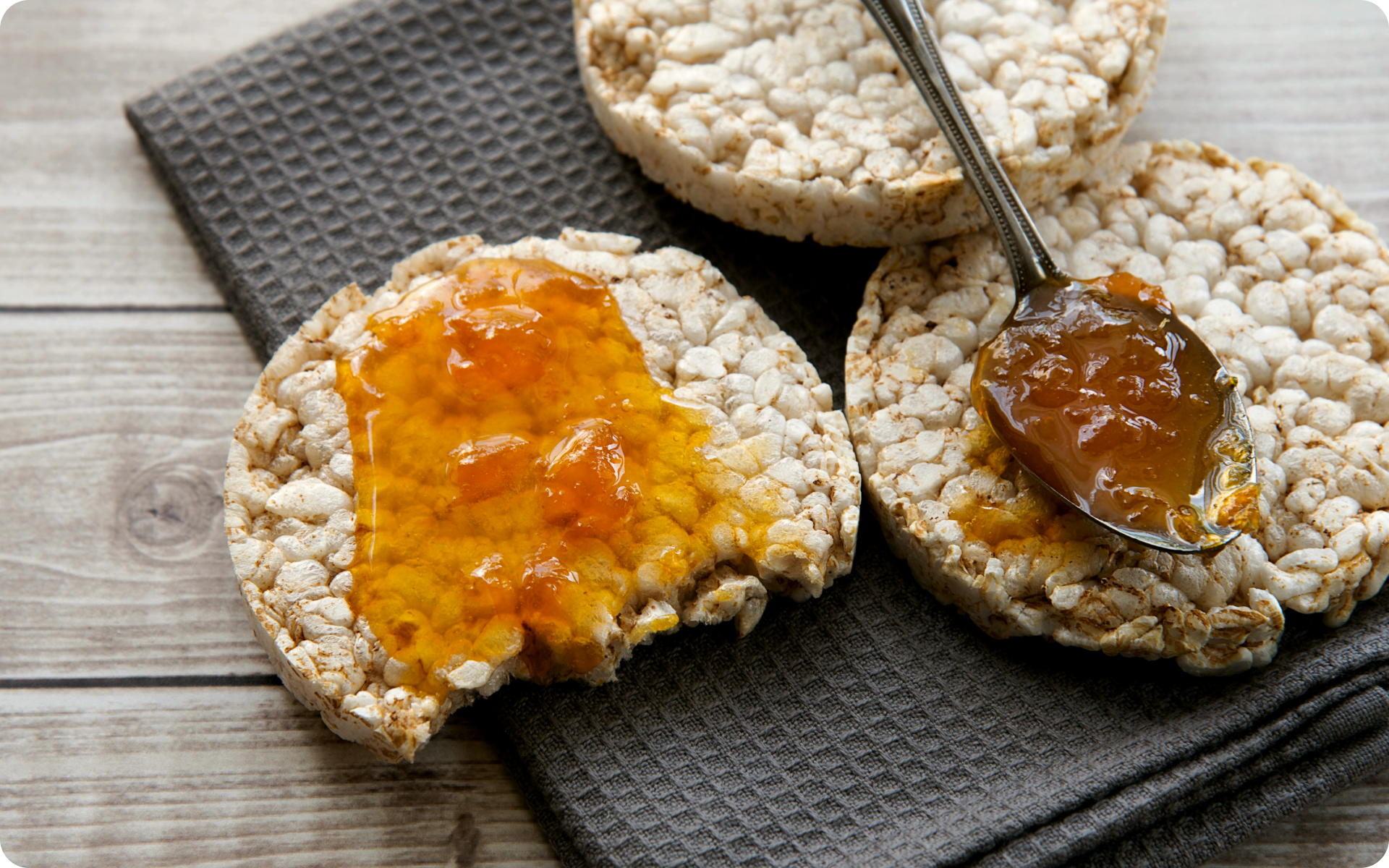We’ve all been there — waking up feeling sluggish and struggling to find the motivation to get out of bed, or rushing through our morning routine without having time for a proper breakfast. And when we do manage to grab something on-the-go, it’s usually a carb-loaded pastry that leaves us hungry and craving more within an hour. But what if there was a simple solution to these common morning woes? In this blog, we’ll reveal how incorporating high-fiber breakfasts into your daily routine can help you feel more energized and satisfied throughout the day and improve your overall health and well-being. We’ll also give you all the delicious, fiber-rich options you can choose from.
Why Is Fiber So Important For Breakfast?
A fiber-rich diet is generally recommended for overall health and many conditions.
But for breakfast, fiber is especially beneficial due to its positive effects, such as:
Keeps You Full Longer
One of the main reasons why fiber is so important for breakfast is its ability to keep you full for a longer period.
Fiber-rich foods take more time to digest, which means your stomach stays full for an extended period. This can help prevent overeating and snacking throughout the day, ultimately aiding in weight management (2).
Stabilizes Blood Sugar Levels
A high-fiber breakfast can help stabilize your blood sugar levels throughout the day.
Soluble fiber slows down the absorption of carbohydrates into the bloodstream, preventing spikes and crashes in blood sugar levels. This is particularly beneficial for people with diabetes or those at risk of developing the condition (2).
Supports Digestive Health
Fiber is essential for maintaining a healthy digestive system. It adds bulk to your stool, making it easier to pass and preventing constipation (2).
Additionally, soluble fiber serves as a prebiotic, feeding the beneficial bacteria in your gut. This supports a healthy gut microbiome, which can positively impact your immune system and overall health (2).
Reduces Cholesterol Levels
Soluble fiber has been found to help lower cholesterol levels by binding to cholesterol particles in the digestive system and removing them from the body. This may lower your risk of heart disease and improve overall cardiovascular health (2).
Read More: Eating Clean: Gluten And Dairy-Free Breakfast Options
Provides Sustained Energy
High-fiber breakfasts can provide you with sustained energy throughout the day.
As mentioned earlier, fiber-rich foods take longer to digest, which means your body gets a steady supply of energy from the food you eat. This can help you avoid energy crashes and maintain focus and productivity throughout the day.
Helps Maintain A Healthy Weight
Incorporating high-fiber breakfasts into your daily routine can contribute to maintaining a healthy weight (2).
Since fiber-rich foods keep you full for longer, they can help you consume fewer calories throughout the day. Additionally, high-fiber foods tend to be less calorie-dense, meaning you can eat more without consuming a large number of calories.
How Much Fiber For Breakfast?
To better understand the daily fiber recommendations and how they can be applied to your meals, let’s visualize what a day’s worth of fiber intake might look like for an average adult. Keep in mind that individual needs may vary based on age, sex, and overall health.
Example Daily Fiber Intake For Men (Age 19-50)
Total daily fiber goal: 38 grams (1)
Breakfast (25-30%): 9.5 – 11.4 grams
- 1 cup of high-fiber cereal (5 grams)
- 1 medium apple with skin (4.2 grams)
- 2 tablespoons of almonds (2.2 grams)
Lunch (30-35%): 11.4 – 13.3 grams
- 2 slices of whole-grain bread (3.49 grams)
- 1 cup of mixed salad greens (0.50 grams)
- 1/2 cup of cooked black beans (7.5 grams)
Dinner (30-35%): 11.4 – 13.3 grams
- 1/2 cup of cooked brown rice (1.75 grams)
- 1 cup of cooked broccoli (5.1 grams)
- 1 medium sweet potato with skin (3.8 grams)
Snacks (10%): 3.8 grams
- 3 cups of air-popped popcorn (3.6 grams)
When it comes to weight loss, progress is made by inches, not miles, so it’s much harder to track and a lot easier to give up. BetterMe app is your personal trainer, nutritionist and support system all in one. Start using our app to stay on track and hold yourself accountable!
Example Daily Fiber Intake For Women (Age 19-50)
Total daily fiber goal: 25 grams (1)
Breakfast (25-30%): 6.25 – 7.5 grams
- 1/2 cup of cooked oatmeal (1.99 grams)
- 1/2 cup of raspberries (4.87 grams)
Lunch (30-35%): 7.5 – 8.75 grams
- Quinoa salad with 1/2 cup cooked quinoa (2.6 grams)
- 1 cup of chopped bell peppers (2.9 grams)
- 1/4 cup of chickpeas (3 grams)
Dinner (30-35%): 7.5 – 8.75 grams
- 1 cup of cooked whole-wheat spaghetti (4.3 grams)
- 1/2 cup of cooked green peas (4.4 grams)
Snacks (10%): 2.5 grams
- 1 medium-sized banana (2.1 grams)
By breaking down the daily fiber intake into meals and snacks, it becomes easier to visualize and plan your diet accordingly.
Incorporating a variety of fiber-rich foods throughout the day ensures that you meet your daily fiber goals and enjoy the numerous health benefits associated with a high-fiber diet.
What Breakfast Foods Are High In Fiber?
There are plenty of breakfast foods that are high in fiber, which can be grouped into the following categories:
Whole Grains
Whole grains are an excellent source of fiber and nutrients. They provide a steady release of energy throughout the morning, keeping you full and satisfied for longer periods.
Cereals
Opt for high-fiber cereals made from whole grains such as bran flakes, shredded wheat, or muesli. Look for cereals with at least 5 grams of fiber per serving.
Oatmeal
Rolled oats and steel-cut oats are both great sources of fiber. You can cook them on the stovetop or microwave, or even make overnight oats for a quick and easy breakfast option.
Whole-Grain Bread
Choose bread made from whole grains like whole wheat, rye, or multigrain. These breads have a higher fiber content compared to white or refined breads.
Read More: Delicious Gluten Free Breakfast Sandwich Recipes
Fruits
Fruits are not only delicious but also packed with fiber, vitamins, and minerals. Including a variety of fruits in your breakfast can help you meet your daily fiber goals.
Berries
Blueberries, strawberries, raspberries, and blackberries are all rich in fiber. Add them to your cereal, yogurt, or oatmeal for a tasty fiber boost.
Apples And Pears
These fruits are particularly high in fiber, especially when consumed with their skin on. Slice them up and enjoy with your favorite nut butter or add them to your breakfast bowl.
Bananas
Bananas are an easy and convenient source of fiber. They can be eaten on their own, added to smoothies, or used as a natural sweetener in oatmeal or yogurt.
Vegetables
Though not as common in traditional breakfast dishes, vegetables can be a great addition to your morning meal, providing essential nutrients and fiber.
Leafy Greens
Spinach, kale, and chard can be incorporated into your breakfast by adding them to omelets, frittatas, or smoothies.
Avocado
Avocado is a good source of healthy fats and fiber. Enjoy it on toast or in a smoothie for a creamy, satisfying addition to your breakfast.
Sweet Potatoes
You can make sweet potato hash or even sweet potato toast as a high-fiber alternative to traditional breakfast options.
If you wish to free yourself from all the extra pounds that have been weighting you down for way too long, start using the BetterMe app and overhaul your entire life!
Nuts And Seeds
Nuts and seeds are nutrient-dense and rich in healthy fats, protein, and fiber. They make a great addition to various breakfast dishes.
Almonds
Almonds can be sprinkled on yogurt, oatmeal, or cereal to increase fiber intake. You can also enjoy almond butter on whole-grain toast or apple slices.
Chia Seeds
These tiny seeds pack a big fiber punch. Add them to your smoothie, oatmeal, or yogurt, or make a chia seed pudding for a delicious and filling breakfast.
Flaxseeds
Ground flaxseeds can be mixed into your oatmeal, yogurt, or smoothie to boost your fiber intake. Just make sure to grind them first, as whole flaxseeds are not easily digested.
Legumes
Legumes are an excellent source of fiber, protein, and various essential nutrients. While not commonly associated with breakfast, they can be easily incorporated into your morning meal.
Beans
Black beans, kidney beans, and chickpeas can be added to breakfast burritos or scrambled eggs, or even made into a bean spread for toast.
Lentils
Cooked lentils can be used to create savory breakfast bowls or mixed with vegetables for a fiber-packed frittata.
Soy Products
Tofu or tempeh can be scrambled with vegetables for a high-fiber, protein-rich breakfast alternative to eggs. Edamame can also be added to breakfast grain bowls or salads.
Dairy And Dairy Alternatives
Certain dairy products and dairy alternatives can contribute to your fiber intake while providing additional nutrients like calcium and protein.
Greek Yogurt
Though not high in fiber itself, Greek yogurt can be used as a base for adding fiber-rich toppings like fruits, nuts, seeds, or whole-grain granola.
High-Fiber Dairy Alternatives
Some plant-based milk and yogurt options are fortified with added fiber. Check the nutrition facts labels to find products with higher fiber content.
High-Fiber Crackers
Whole grain and high-fiber crackers can serve as a quick and easy base for various breakfast toppings, providing a crunchy alternative to bread.
Rice Cakes
Brown rice cakes can be topped with avocado, nut butter, or cottage cheese and fruits for a satisfying, fiber-rich breakfast.
Breakfast Bars And Bites
Breakfast bars and bites can be a convenient way to incorporate more fiber into your morning routine, especially when you’re on the go.
High-Fiber Granola Bars
Choose granola bars made with whole grains, nuts, seeds, and dried fruits for a fiber-packed breakfast option. Be mindful of added sugars and opt for bars with minimally processed ingredients.
Homemade Energy Bites
Make your own high-fiber breakfast bites using oats, flaxseeds, chia seeds, nut butter, and dried fruits. These can be easily customized to suit your taste preferences and stored for a quick grab-and-go breakfast.
High-Fiber Smoothies
Smoothies can be an excellent vehicle for incorporating various high-fiber ingredients into a delicious and refreshing breakfast beverage.
Conclusion
Incorporating high-fiber breakfast foods into your daily routine is a great way to kick-start your day with a nutritious and satisfying meal.
These foods not only promote better digestion and overall health but also provide a variety of delicious options to keep your mornings interesting.
By combining different whole grains, fruits, vegetables, legumes, nuts, and seeds, you can easily create fiber-rich breakfasts that cater to your taste preferences and dietary needs.
DISCLAIMER:
This article is intended for general informational purposes only and does not serve to address individual circumstances. It is not a substitute for professional advice or help and should not be relied on for making any kind of decision-making. Any action taken as a direct or indirect result of the information in this article is entirely at your own risk and is your sole responsibility.
BetterMe, its content staff, and its medical advisors accept no responsibility for inaccuracies, errors, misstatements, inconsistencies, or omissions and specifically disclaim any liability, loss or risk, personal, professional or otherwise, which may be incurred as a consequence, directly or indirectly, of the use and/or application of any content.
You should always seek the advice of your physician or other qualified health provider with any questions you may have regarding a medical condition or your specific situation. Never disregard professional medical advice or delay seeking it because of BetterMe content. If you suspect or think you may have a medical emergency, call your doctor.
SOURCES:
- Chart of high-fiber foods (2020, mayoclinic.org)
- Health benefits of dietary fiber (2009, oup.com)
